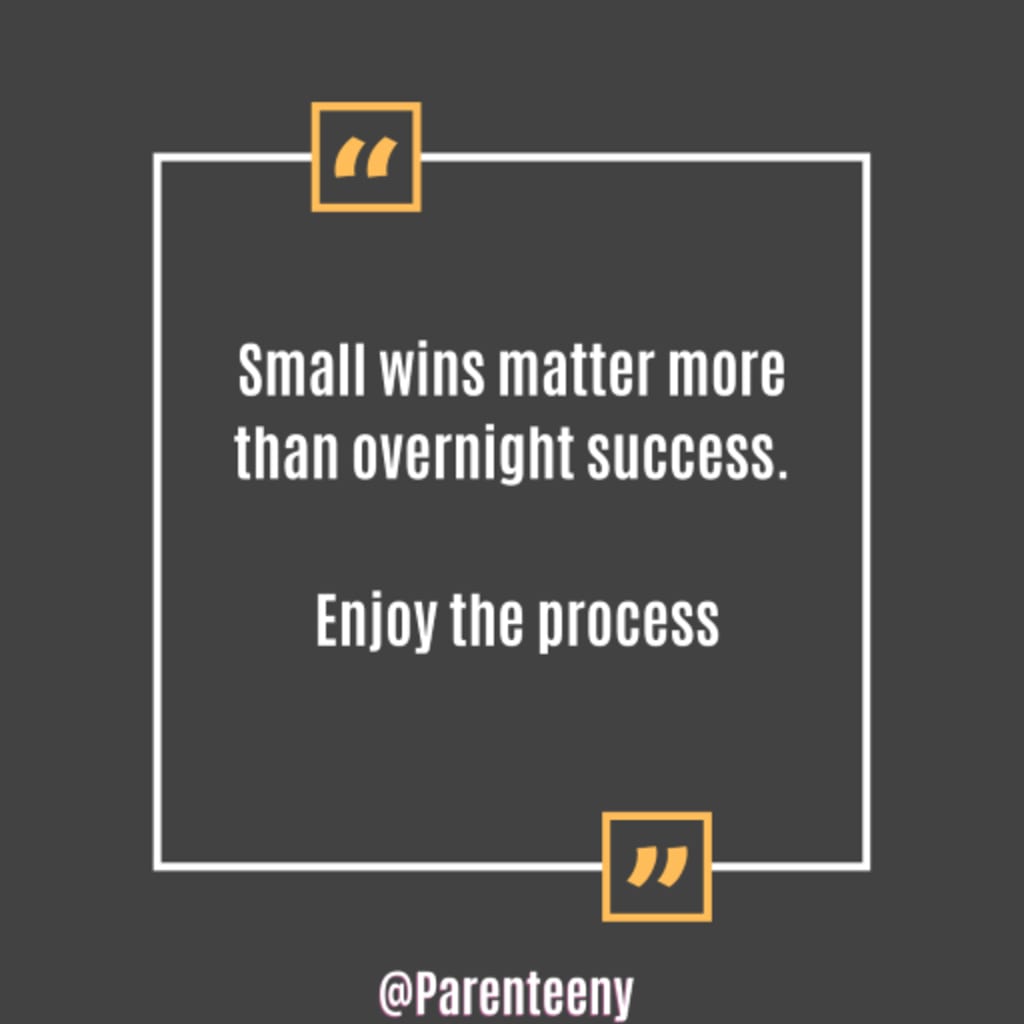This Unexpected Practice, Backed By Science, Is Where You'll Find the Key to Your Self-Motivation
The field of neuroscience has made a startlingly basic discovery about a source of limitless self-motivation.

If we put our minds to it, we are capable of accomplishing anything. When it comes to accomplishing our objectives, though, we may at times get the impression that our minds are actively working against us.
Plans to acquire a new skill, get into better condition, save money, and launch a business continually getting put on the back burner in the expectation that "someday" you will get around to tackling these issues.
It's a vicious loop of destructive behavior. One of the definitions of self-sabotage in the field of psychology is procrastination.
However, there is some good news. According to Psychology Today and cognitive neuroscience, the potential solution is shockingly straightforward, even though learning how to become self-motivated may feel like a challenge or an ill-defined concept.
Ron Siegel, a professor of psychology at Harvard University, indicated that the secret to following through on one's desire boils down to this: bringing optimism and joy back into the picture. His findings suggested that this is the key to following through on one's motivation.
Is it just me, or does this seem a bit unreal to you as well?? After all, writing a term paper or doing your taxes isn't exactly the most enjoyable activity.
Although this practice may not appear to have anything to do with science, the neurological reasons behind it do.
According to the findings of the study, the fundamental aspects of our psyche are to blame for our tendency to put off pursuing our goals. Our contemporary brains are still built up for the ancient evolutionary purpose of living in a hostile environment. Over around one million years, we developed specialized brain structures that were able to selectively tune into threat signals.
As a result, when it comes time to create and be productive, rather than focusing on the pleasurable and rewarding aspects of achieving our goals, our brains dwell on the anxiety and fear that comes with trying something new, putting ourselves out there, or daring to fail. This prevents us from concentrating on the aspects of achieving the goals that will bring us the most satisfaction.
When we are forced to survive, we tend to avoid circumstances that could make us feel uncomfortable. Optimism and enjoyment are relatively recent additions to the human brain in terms of its evolutionary history.
On the other hand, there are a few really simple things you can do that will make the process of attaining your goals and realizing your ambitions feel effortless and satisfying:
Bring the balance closer to your side
Siegel recommends that one easy method to get out of a rut with one's self-motivation is to draw up a list and get the delights of doing something to exceed the first pangs of getting started. This is one simple technique to break out of a self-motivation rut.
A straightforward list with advantages and negatives separated by two columns would do the trick well. Even while filling out the Excel spreadsheet at work might not be your idea of a good time, you'll soon realize that it was well worth it to be able to relax and enjoy your weekend without having to worry about it.
Although this method is effective on its own, the next step is what makes this strategy truly shine:
Imagine having a sensation across your entire body
While you are writing down your list, make a concerted effort to imagine and conjure the specific emotions and sensations that you will experience once you have achieved your goal.
If you want to follow a healthier diet, for example, try to imagine how you would feel as a direct result of the changes in your diet. This will help you stay motivated. Consider how you'll have more energy, how your skin will improve, and how you'll protect yourself from developing heart disease if you do this. That's exactly what I am trying to do while I am writing the very next article for the blog, or preparing a new ParenTeeny product for the market.
Your brain can learn to be motivated by things other than fear if you take it through the steps of achievement, including the pleasures and advantages it offers, and mentally go through those steps with yourself.
The practice of seeing oneself achieving their goals has been shown through scientific research to improve one's chances of doing so. According to one further piece of writing published in Psychology Today, "research has found that mental activities are almost as effective as an actual physical practice and that performing both is more effective than either alone".
Enjoy the fruits of your labor
When it comes to this particular question, you could be thinking, "But I'm not a kid. Every time I accomplish something, I don't feel the need to be praised for it."
However, getting back to what Professor Siegel was saying, one of the most essential components of long-term, sustainable self-motivation is pleasure and joy, and a reward system is an excellent approach to assist achieve this goal.
Not only is rewarding oneself for achieving goals an effective method of self-care, but it also alters the chemical makeup of our brains, which can cause us to feel more motivated as a result.
In a study that compared the brains of driven people to the brains of not-so-driven people, researchers found that the amount of dopamine in a particular region of the brain played a significant impact on people's ability to inspire themselves. It has been found that dopamine is released in the brain when a person anticipates receiving a reward, and it has also been found that praising oneself for accomplishments can help one remain on track.
Make sure you pick the appropriate prizes
Because positive motivation is effective, it is important not to fall into the trap of self-sabotaging your wins by rewarding yourself with counter-productive activities, such as excessive spending. As I have been there several times, I usually think it over and my conclusion on the topic is that if the rewards you offer yourself undercut the objective itself, it only serves to set you back.
Always keep in mind that the best gift you can give to yourself is money well spent on improving yourself. The new "I deserve it" should be something that continues to reward you for years, rather than something that punishes you when the novelty wears off. It should be something that you feel you have earned. Because the old "I deserve it" was something that punished you when the novelty wore off.
Ways to keep oneself self-motivated that are both enjoyable and productive include things like enrolling in an engaging course or putting money away for potential future activities. Putting money down for your future is a fantastic thing that you are doing for yourself. That is something that you should be ecstatic about!
Honor even the little victories
You, like the majority of people (including myself!) on the path to success, most likely have significant — and, with any luck, ambitious — long-term goals that you're working toward. However, you surely already know that these enormous goals won't be achieved overnight because they're so ambitious.
Because of this, you should make it a point to give yourself some time every day to give a symbolic fist pump. Keep in mind that this is a journey, and it is a difficult one. The only way to make it sustainable and acceptable is if you genuinely acknowledge your minor victories along the way.
You will eventually get through the challenging task as long as you keep your attention on the enjoyable, gratifying, and sensory sensations associated with the accomplishment of your goals.
If you find value in this article, you can share it with your friends and subscribe to our mailing list. You can also support us on Patreon, or follow us on Instagram and Facebook.
I'd be interested in hearing any advice that you would have to provide regarding how to motivate oneself.
*Disclaimer:
This is a personal article, as I have been asked several times by friends why have I started ParenTeeny; where my motivation comes from; why am I doing what I am doing. So, I decided to answer in the best way I can - through writing. The original one can be found here. Hope you enjoy it!
About the Creator
Enjoyed the story? Support the Creator.
Subscribe for free to receive all their stories in your feed. You could also pledge your support or give them a one-off tip, letting them know you appreciate their work.





Comments
There are no comments for this story
Be the first to respond and start the conversation.